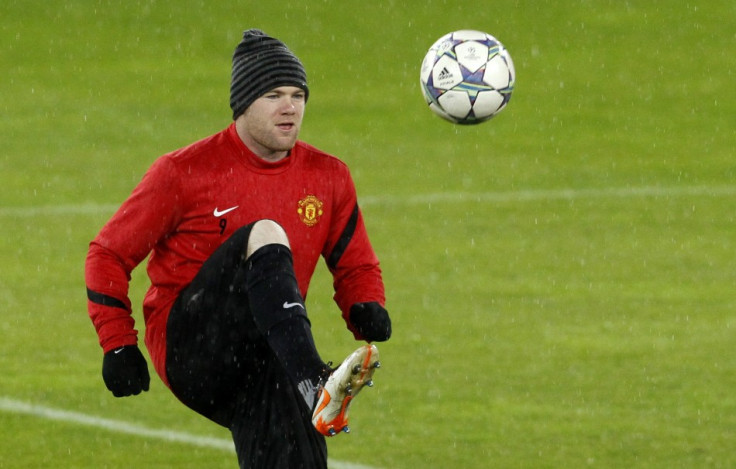Rooney’s 'Imaginary Red Card' Should Be Put Into Context
Opinion: Wayne Rooney and Roberto Mancini, should be given some allowances to be human

Wayne Rooney's protestation over Vincent Kompany's tackle on Luis Nani in Manchester United's FA Cup tie against Manchester City seems to have stirred up debate amongst football pundits over whether the 'imaginary red card' is indeed an inherent problem in the Premier League.
Roberto Mancini seems to believe that it is, and made his feelings clear after United earned the Manchester bragging rights after their 3-2 win. The Italian subsequently mirrored the gesture the following week, yet Mancini insisted his ill-advised action was on a different level to Rooney's alleged offence.
"Yes, but I am on the bench. It's different," he mused. "When you are a player very near to the referee you can have more of an influence. I am on the bench and the referee cannot see me."
Wigan manager Roberto Martinez weighed in on the issue, suggesting the gesture was a form of cheating.
"I've been here long enough to understand that trying to influence the referee is not accepted in the British game," he said.
"When a player tries to simulate or buy a decision from the referee, that is regarded as cheating. I understand that in Italy, France and Spain it is acceptable to try and get a decision from the referee, but it is different here."
But is a hand gesture really something that should be looked upon so poorly in the Premier League?
It seems as every season comes and goes, the colour and character of goal celebrations, interaction with the fans and raw emotions of the game are being limited in the hopes of sanitising the game for all audiences.
In April last year, Wayne Rooney was hauled before the FA for swearing at the camera after getting back on the goal scoring trail for United. The striker insisted he hadn't planned what he said, and that "it was just emotions."
Luis Saurez had to face the FA's furore in December, after signalling to fans who were calling him a cheat.
Just last week, Thierry Henry had to apologise for arguing with a fan directing abuse towards him as Arsenal lost to Swansea. And Emmanuel Adebayor is still apologising for daring to celebrate in front of Arsenal fans when he scored for Manchester City in 2009.
Fast forward to the present, and discussions continue over whether the 'imaginary red card' is a sign of poor gamesmanship by players and managers, and should be stamped out of the league with serious punishments available if anyone is caught in the act.
While the way Barcelona and Real Madrid players surrounded the refs in the Champions League semi-final first leg was enough to make any football fan demand change to players' treatment and respect for the referees, there needs to be a balance between insisting on gamesmanship and understanding that players, at the end of the day, are human too.
Every move within professional football is now scrutinised by millions of experts, fans and those who are paying lofty wages around the world. When a decision doesn't go a player's way, emotions are of course running high and rather than engineer an eloborate scheme in the hope of convincing or persuading a ref to alter their decision, players will occasionally over-step the boundaries of good conduct in the heat of the moment. But surely this is not a pre-empted action?
While Rooney is the quintessential Marmite player, having starred for a club that most love to hate, the United striker is surely entitled to illustrate a little bit of raw emotion every now and then.
And while his swearing at the TV may have gone too far, there have got to be far bigger issues in the game to worry about, than a pithy disagreement with a ref or an ill-advised gesture from the sidelines.
Dehumanising the emotive nature of football, as illustrated by Rooney and Roberto Mancini, is surely one of the things that makes football so unique and the authorities should be wary of curtailing it.
© Copyright IBTimes 2024. All rights reserved.






